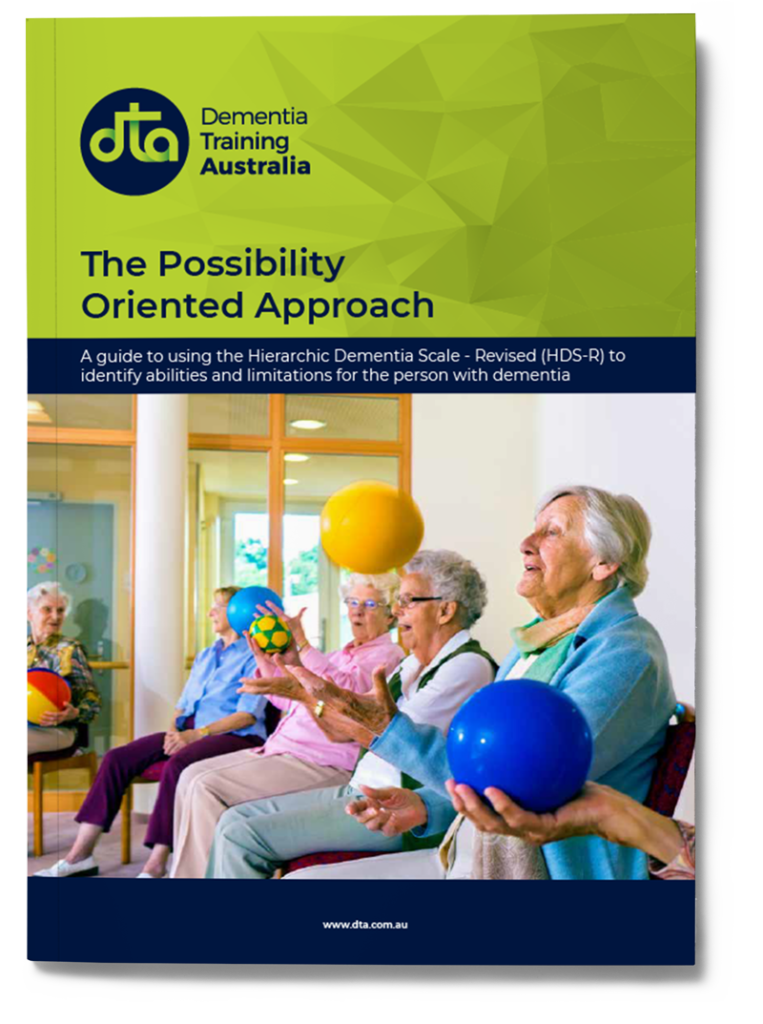The Possibility Oriented Approach

The Possibility Oriented Approach. A guide to using the Hierarchic Dementia Scale-Revised (HDS-R) to identify abilities and limitations for the person with dementia
This guide is designed to assist health professionals interpret the results gained from the Hierarchic Dementia Scale-Revised (HDS-R) and develop appropriate strategies for people with dementia to both support cognitive losses AND utilise remaining abilities.

The Hierarchic Dementia Scale (HDS) was originally developed by Dr Dolly Dastoor, Clinical Psychologist, Douglas Hospital and Dr Martin Cole, Psychiatrist in Chief at McGill University in Canada, as a way to measure changes in cognitive ability across time, i.e. a longitudinal measure of cognitive decline.
It was revised by the Western Australian Dementia Training Study Centre in collaboration with the original developers in 2015 and is now available as the HDS-R. The theoretical concept on which the HDS-R is designed allows clear identification of remaining abilities at any point of assessment. It is this that makes the HDS a useful tool for health professionals planning meaningful and person-centred care for people with dementia. The first implementation manual was prepared in 1994 as an educational aid to assist occupational therapists and other health professionals interpret the results gained from the HDS and develop appropriate strategies for people with dementia to both support cognitive losses AND utilise remaining abilities.
To purchase the HDSR kit or scoresheets, please navigate to HammondCare who are exclusive suppliers of these resources in Australia and New Zealand.
Downloads
Downloads
Topics